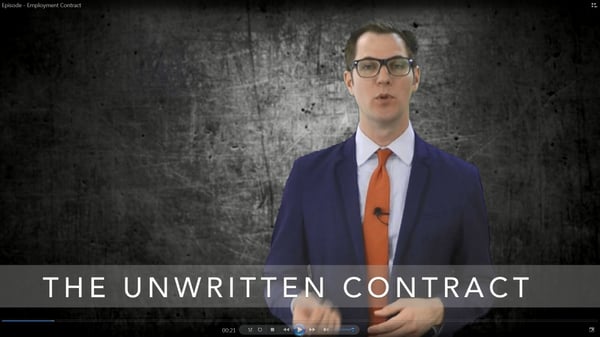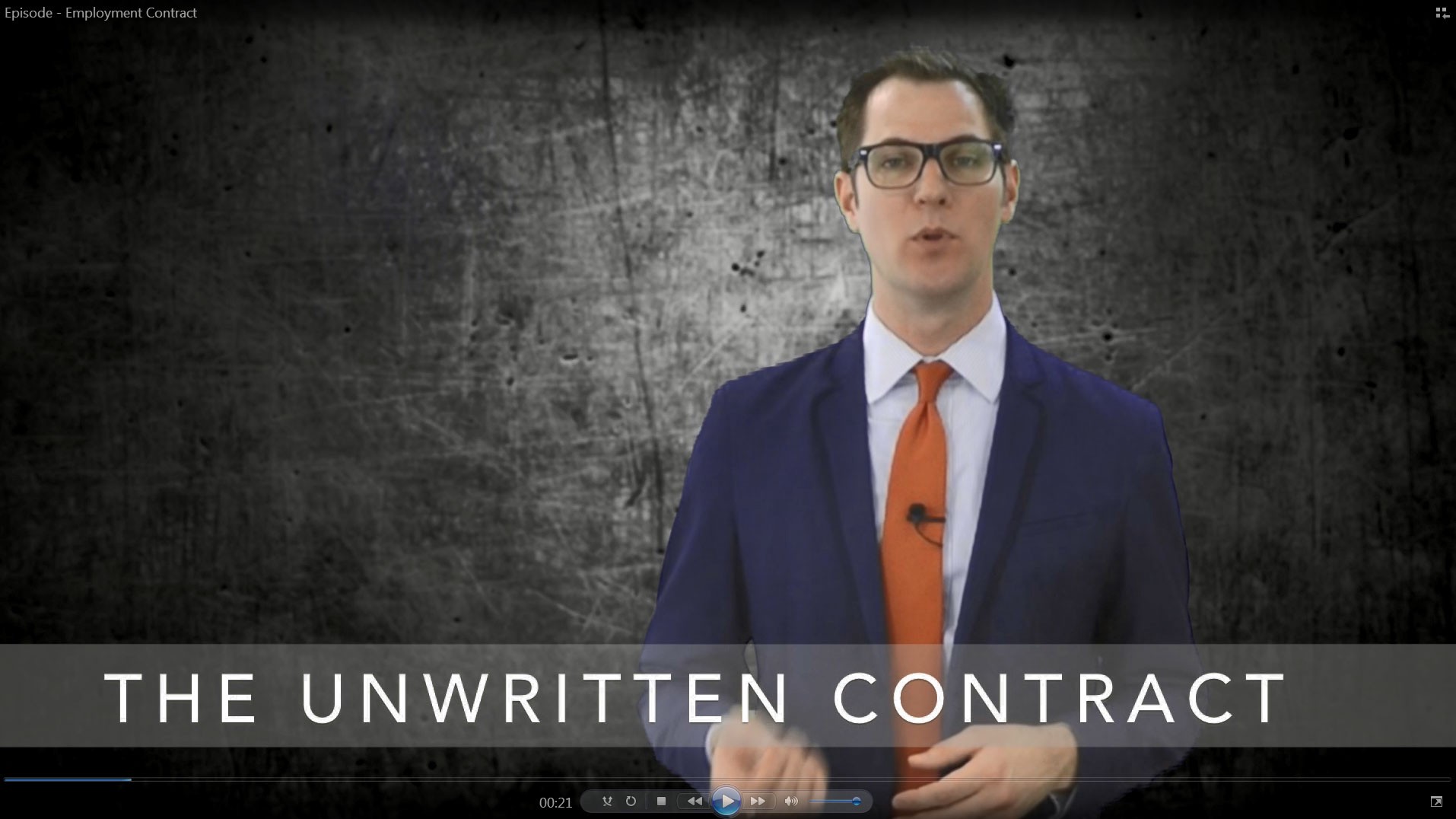Who Changed The Game?
Big Ideas | How We Work | Change Management | People Operations | Human Resources
The Unwritten Employment Contract

Most of us in the cultural sector — and in the American workforce, for that matter — operate without a written employment contract. We apply for, and accept, jobs based on an understanding of the type of organization we’ll work for, its mission, the kind of work we’ll be expected to complete, and the conditions under which we’ll do the work: Dance company, the work of X choreographer, accounting, largely weekdays from 9 to 5.
In exchange for that work, the company agrees to pay us a certain amount, on a predictable schedule, and maybe throw in a few perks to sweeten the deal along the way.
That’s the unwritten contract. You do agreed-upon acceptable work for them. And they pay you.
This works, largely as expected, until something changes with the contract. The dance company becomes a string quartet. Or, rather than X choreographer it becomes A, B, C choreographers. The accounting work is outsourced to a firm. The hours or conditions change. Or, if you unfortunately are fired, that usually puts a definitive end to this unwritten contract.
Why do people feel hurt, or betrayed, when the contract changes? Well, I held up my end of the deal — even if their perception and reality differ — and they pulled the carpet out from under me.
Changing the contract that you agreed to, especially if you feel like it’s being done without your input, can be tough. (See my post about SCARF and things that flip people’s fight or flight switches to learn more about this.) You might not even recognize that this is what happened, but you’re newly frustrated and now engaged in some soul searching.
This changed contract is also one of the reasons why when there are leadership changes at an organization you often see a cascade of people leave, particularly if that leader has been with the company for years. “One of the main reasons I wanted to work here was to work with Jane and now Jane is no longer here. Maybe I’ll give the next person a try or maybe I’ll try something else.” Some people choose the former, some the latter. We can all think of examples like this. When that 30-year veteran Executive Director retires, other people are bound to follow.
What to do about this?
At the very least, it’s something to keep in mind. Why is that person who previously did great work for us disgruntled or newly disengaged? Check the unwritten contract. It can help pinpoint the issue and inform conversations. Sometimes it allows an opportunity to clarify and reframe how that thing you think is different is just a variation of the original. And sometimes, yep, it changed.
The world is a rapidly changing place. Innovative companies are — by their very nature — constantly iterating and changing. Sometimes change runs counter to what made people fall in love with the work in the first place, or the things that keep them excited about it. And sometimes, organizational and individual interests grow or evolve in ways that make their continued journey together no longer possible.
If you’re trying to identify what’s at play here, ask people a couple of questions: When you came to work here, why did you accept the job? What excited you about the organization and work? How about now? What, if anything, do you feel has changed for you? For the company? For the sector?
Then ask, What else? And continue to ask it — in slightly different ways — five. more. times. I promise you, even if you think you know what the answer will be, something magical happens when you keep asking the “What else?” question. You discover, uncover, and unlock helpful information that adds to the picture and to a fruitful conversation.
So there you have it, the Unwritten Employment Contract. Godspeed.
About Tim Cynova
Tim wears a multitude of hats, all in service of creating anti-racist workplaces where people can thrive. He currently is co-CEO of Fractured Atlas (an entirely virtual organization with staff spread across multiple states and countries) and a Principal of the consulting group Work. Shouldn't. Suck. He serves on the faculty of Banff Centre for Arts & Creativity and The New School teaching courses in People-Centric Organizational Design; he's a trained mediator, and a certified Senior Professional in Human Resources (SPHR). Earlier in his career, Tim was the Executive Director of The Parsons Dance Company and of High 5 Tickets to the Arts in New York City, had a memorable stint with the Cincinnati Symphony Orchestra, was a one-time classical trombonist, musicologist, and for five years in his youth he delivered newspapers for the Evansville, Indiana Courier-Press. Also, during a particularly slow summer, he bicycled 3,902 miles across the United States.


